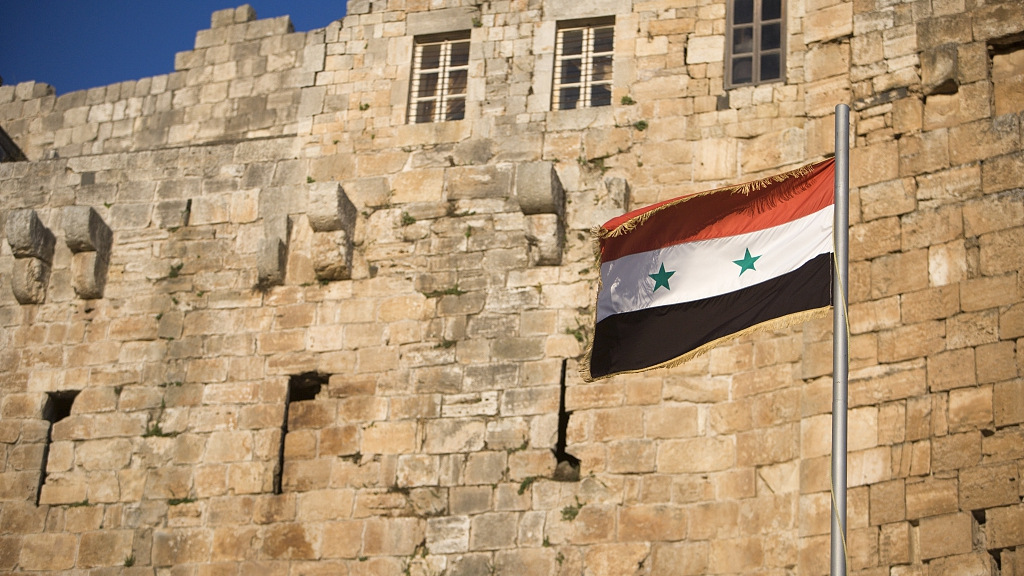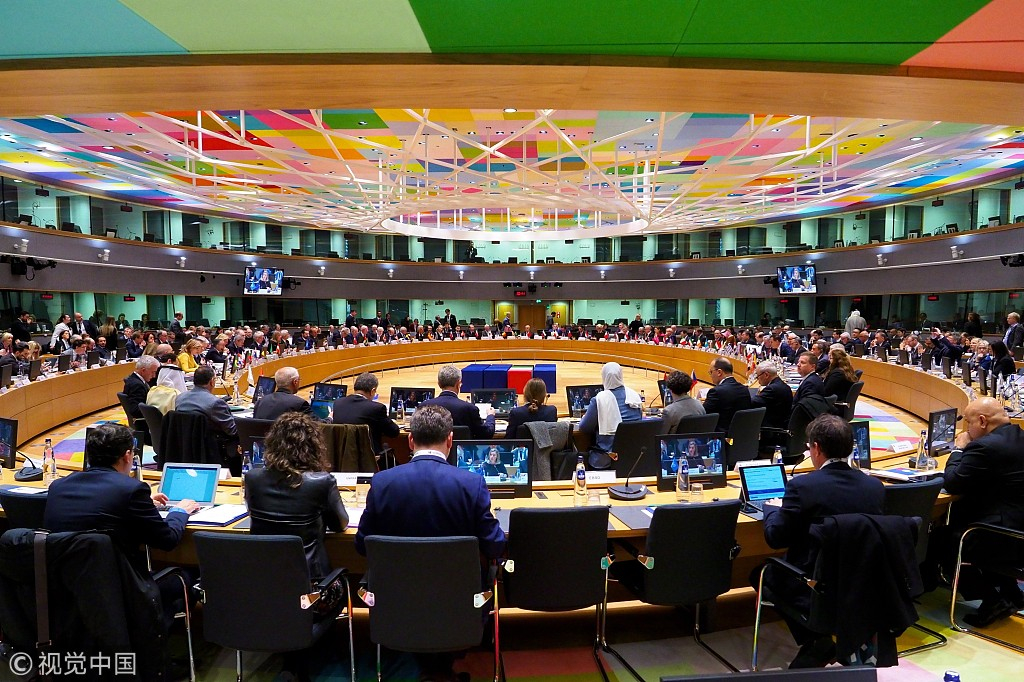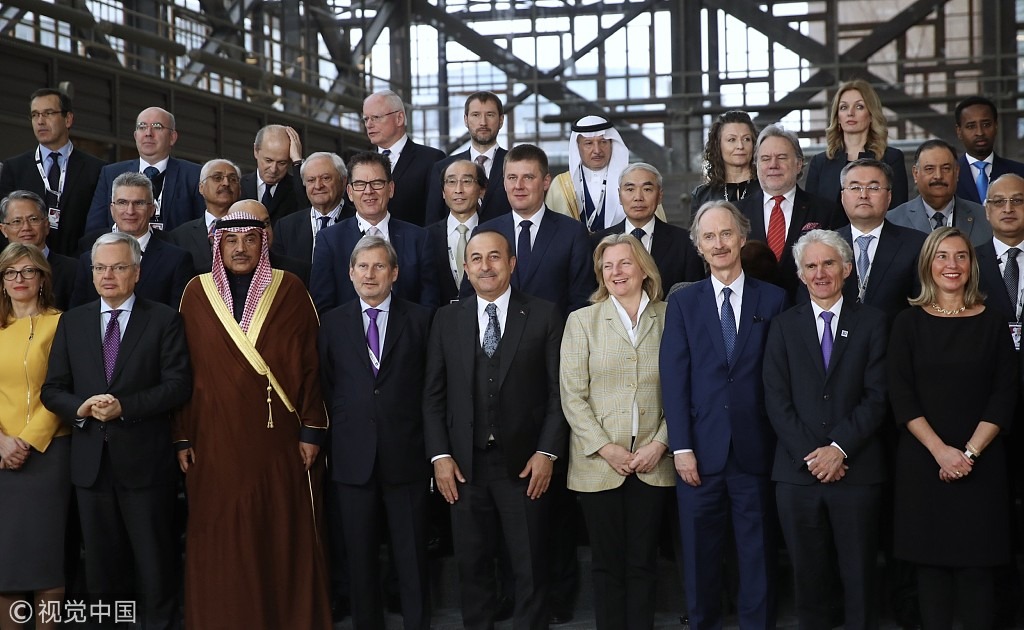
Opinion
14:21, 16-Mar-2019
EU funding to Syria obligatory for democratic constitution, free and fair elections
Yusuf Erim

Editor's Note: Yusuf Erim is the Middle East analyst and commentator. The article reflects the author's opinion and not necessarily the views of CGTN.
As the fighting in Syria, which has triggered one of the worst humanitarian disasters in history, enters its final stages, a political solution and comprehensive strategy for the war-torn country's refugee crisis remain unanswered.
Little did we know in 2011, what began, as protests for democracy would morph into a revolution and metastasize into a full-blown proxy war, killing hundreds of thousands of people and displacing millions.
Now as we enter the ninth year of the conflict, the international community, which has come together through a series of summits ranging from Astana and Sochi to Geneva and Brussels, aims to put together the pieces of a fractured nation.
While many countries want to begin talks for a political solution process, there are major obstacles hindering these initiatives.
Namely the near 6 million Syrians who fled the civil war to seek refuge in Turkey, Lebanon, Jordan and the EU. Despite the relative calm in southern Syria and the impending defeat of ISIL in the northwest, the majority of refugees have chosen not to return home.
The main concerns among displaced Syrians are security, fear of persecution, destruction of homes and lack of infrastructure and basic necessities. These problems are compounded by a lack of funding for rebuilding and more importantly weak local governance to administer municipal responsibilities.
One of the few success stories in Syria has been the cities of Jarablus and Al-Bab. Once ISIL strongholds, these areas were liberated in 2016 as part of Operation Shield launched by Turkey and its local allies.

"Supporting the Future of Syria and Region" conference is held in Brussels, Belgium, March 14, 2019. /VCG Photo
"Supporting the Future of Syria and Region" conference is held in Brussels, Belgium, March 14, 2019. /VCG Photo
Through the creation of local councils, training of domestic police and building of hospitals and schools both of the cities have seen their populations swell as they have become a point of attraction for displaced people.
On the other side of the spectrum, we have Raqqa – a city that was once ISIL's capital – and liberated by the U.S. and its coalition partner the Syrian Democratic Forces (SDF) in 2017.
Now almost two years after the city was freed, much of the landscape is still in ruins and sectarian tensions run high as the Sunni Arab majority population is governed by the SDF, a force that is mainly comprised of the Kurdish paramilitary group, the YPG.
The supply of necessities like water and electricity also remains a problem, keeping refugees from returning home.
Many international organizations have worked to solve Syria's humanitarian problems but none has been as successful as the Astana Three, which consists of Russia, Turkey and Iran.
The group's ability to take quick decisions and apply them through their presence on the ground via local allies has given them a dynamic that the UN and EU have lacked.
However, Astana has its limitations and the war has come with a big price tag. This creates an opportunity for Europe to step in and play an important role in the rebuilding process.

Turkish Foreign Affairs Minister Mevlut Cavusoglu (C) poses for a photo with other participants after opening speeches of the "Supporting the Future of Syria and Region" conference in Brussels, Belgium, March 14, 2019. /VCG Photo
Turkish Foreign Affairs Minister Mevlut Cavusoglu (C) poses for a photo with other participants after opening speeches of the "Supporting the Future of Syria and Region" conference in Brussels, Belgium, March 14, 2019. /VCG Photo
In the third Brussels conference, "Supporting the Future of Syria and Region," co-chaired by the UN and the EU, close to 7 billion U.S. dollars was secured in aid pledges to help civilians recover from the war.
With the World Bank estimating that rebuilding Syria could cost as much as 250 billion US dollars, financial support will be vital for the future of the country. Nevertheless, should this support be given unconditionally?
Turkey's former EU Minister Egemen Bagis believes "the EU should leverage funding to ensure that Syria adopts more democratic constitution and holds free and fair elections. Syrians need to determine their future and elect their leader. Only then will refugees feel comfortable returning home."
There are still many variables in the Syrian equation, but the present state of events clearly shows that Bashar al-Assad will be the main figure that the EU or the UN will have to negotiate with for the reconstruction and a political solution for the foreseeable future.
While Assad may have control over most of the country, he understands the importance rebuilding will play in gaining approval from his people and this cannot be achieved without funding from the international community.
A political solution may still be far in the horizon but meaningful steps could be taken in Belgium to lay the foundation for the process to begin.
(If you want to contribute and have specific expertise, please contact us at opinions@cgtn.com.)

SITEMAP
Copyright © 2018 CGTN. Beijing ICP prepared NO.16065310-3
Copyright © 2018 CGTN. Beijing ICP prepared NO.16065310-3